Want a fun, quick & easy no-sew project? Something you can start and finish during naptime and still have time to fold some laundry?
I found these Room Essentials wall clocks at Target last week for $3.99. (Actually, I think they’re on sale this week for $3!) They come in yellow and blue and black and maybe silver or white.
They’re great as they are, but sometimes I can’t leave well-enough alone. And sometimes, fiddling with things pays off!
And so, I will show you a quick way to personalize your clock with pretty pattern and color and interest. And it doesn’t involve anything being Bedazzled!
What you’ll need:
1 Room Essentials wall clock (or any clock that has a removable face cover or has no face cover at all).
A flat-head and phillips-head screwdriver
A pencil or pen
a piece of pretty, coordinating fabric, large enough to cover the face of your clock
a piece of interfacing or stabilizer about the same size
double-sided tape
So, first thing’s first. Release your new clock from it’s packaging prison. Yes, it requires a screwdriver. Yes, I agree, it’s overkill.
Now we have to take the plastic cover off of the front of the clock. On the backside there are two small tabs holding it in place. Press the smaller one in with a flat head screwdriver to set it free.
Gently ease the plastic cover off of the clock.
Now it’s off. Congrats!
Now choose a fabric that will compliment the color of the clock and coordinate with the room in which it will hang. I was thinking I wanted pink in there, but then I changed my mind.
It’s important to press the fabric well before you begin. You don’t want to attach wrinkly fabric to your clock face.
Now, set your fabric aside for a moment. Lay the plastic cover on top of your interfacing/stabilizer and trace around it with a pen or pencil.
Done.
Now, cut out your circle, leaving a bit of extra space so that later you can cut the interfacing and fabric together for more perfect edges.
Lay your fabric down on your ironing board with the right side facing DOWN.
Then, lay your interfacing on your fabric with the shiny/adhesive side facing the fabric.
This is your opportunity to place the pattern of your fabric where you want it within your circle.
Just make sure one more time that the glued side is facing the fabric. It’s a shame to get that wrong.
Now press it on well according to the instructions.
And cut your circle out!
You can cut it out with scissors if that’s what you have. Really, that will be just great, especially since you have a nice line drawn.
But if you’d rather use a
circle cutter
, just measure the radius of the circle by placing your pin in the center of the clock and your blade at the edge of the white, then tighten your screw. (My cutter isn’t quite aligned in this photo.)
Really, if you’re using the circle cutter you can skip the tracing step. Just find the approximate center of the fabric and interfacing (doing a quick dry-run to make sure you won’t go off the edge anywhere) and cut that bad boy out.
This is your last chance to press, so really make sure any puckers are out of it.
Now, using a ruler or your cutter or any wildly creative method you’d like, find and mark the center of your circle.
From the center of the circle, cut a line to the edge. Do not cut your circle in half! Also, this is another chance to get picky about pattern placement if you want to. If you’d like your seam to point to the six (go straight down), consider how that will affect whatever is going on with your fabric and cut accordingly.
Now, find something small and circular. Maybe 1/4″-1/2″ in diameter.
Place it in the center of your circle and trace around it.
Cut out that little circle carefully with scissors.
Now you get to slide your pretty fabric easily onto your clock face to make sure your fit is right. Feels good!
Once you’ve checked to make sure it fits properly, you can take it off for a minute to put some double-sided tape on the face.
Lay some tape about every two to three hours (ha!) taking extra care to put tape all along where the seam will be.
Now just slide your fabric into place and pat it down so it’s sure to stick well to the double-sided tape. Smooth out the seam to conceal it as best as you can.
Pop the cover back into place.
Now all you need is the correct time and a AA battery and you’re good to go!
Pretty and easy!
So pretty and easy in fact, that I did a yellow one too just for kicks! (My seam wasn’t awesome here. The truth is, the yellow one was my first one before I decided to do a tutorial. Live and learn. And y’all get to learn from my mistakes to give the seam lots of tape!)
Cheers!
Related posts:
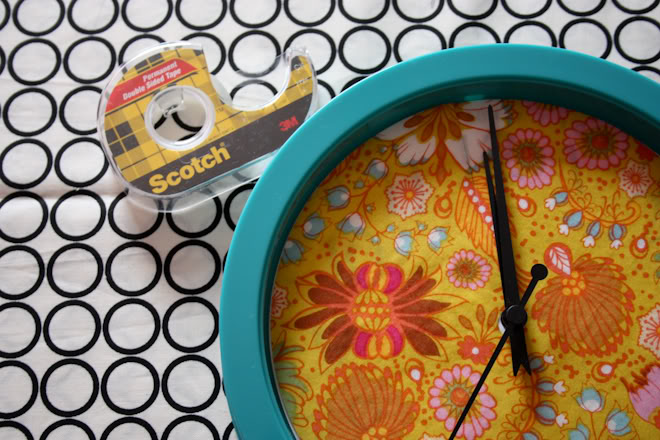


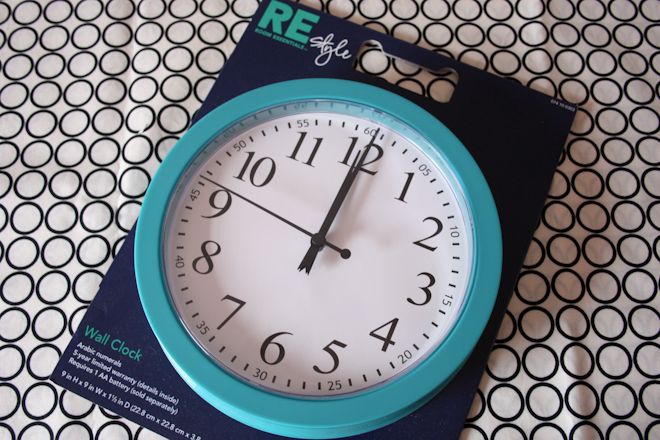
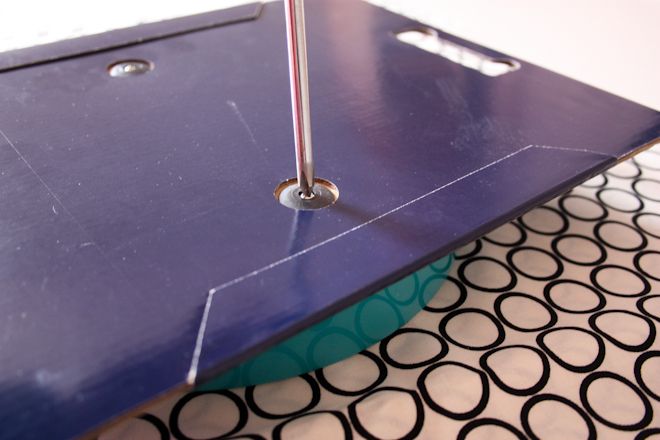
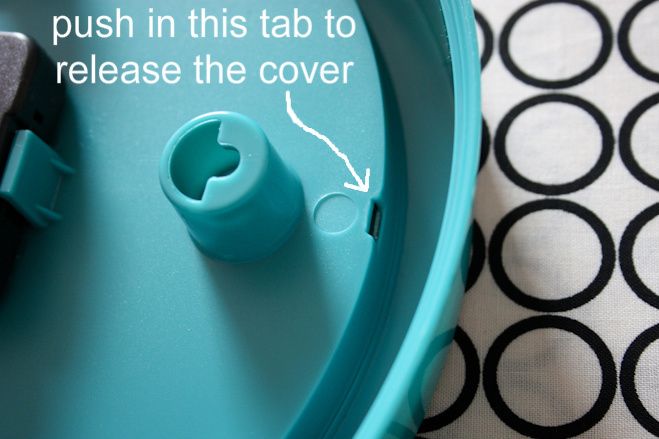
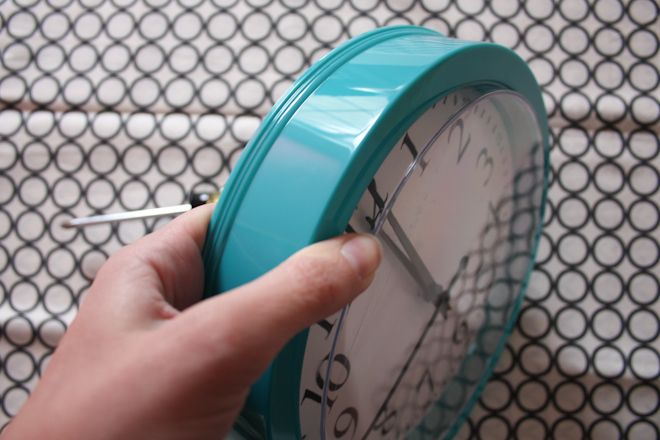
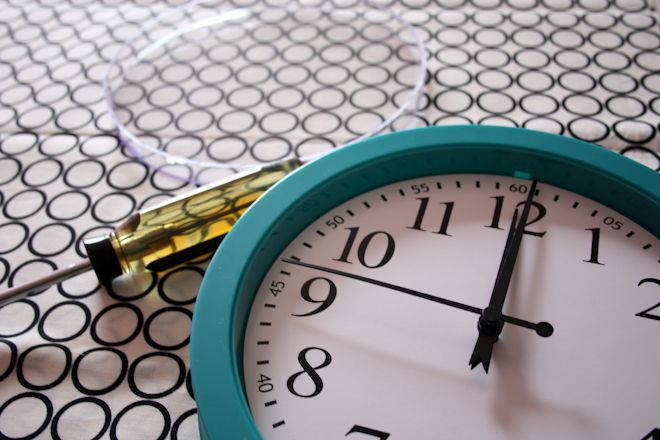
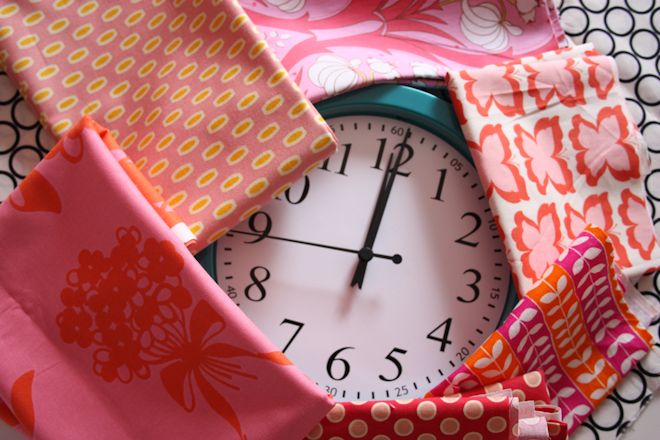
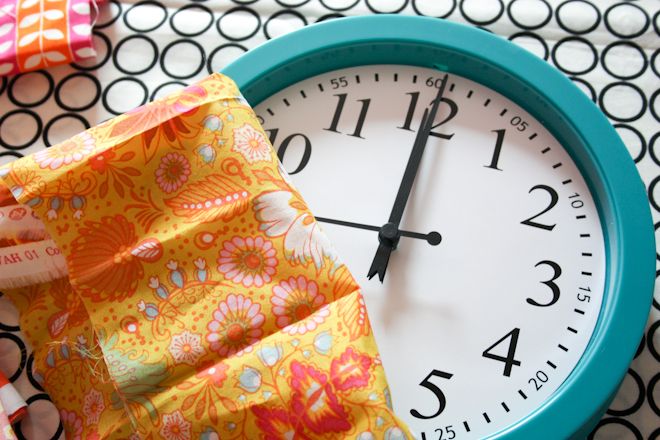
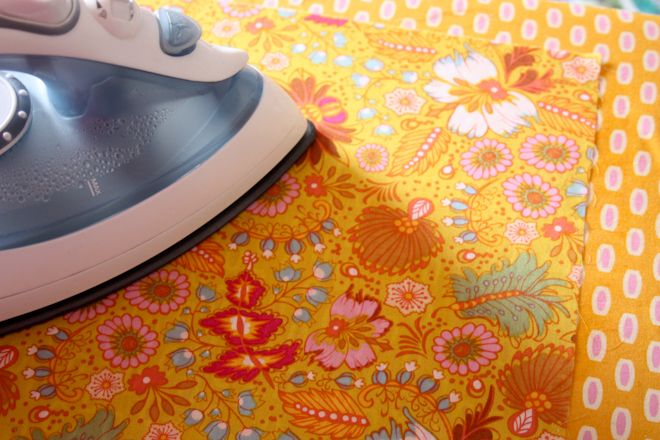
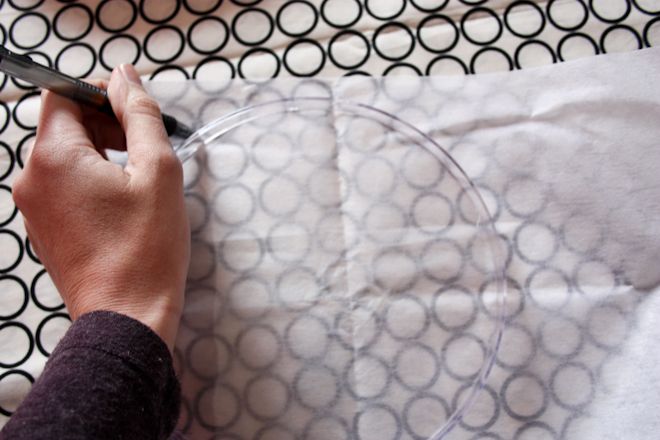
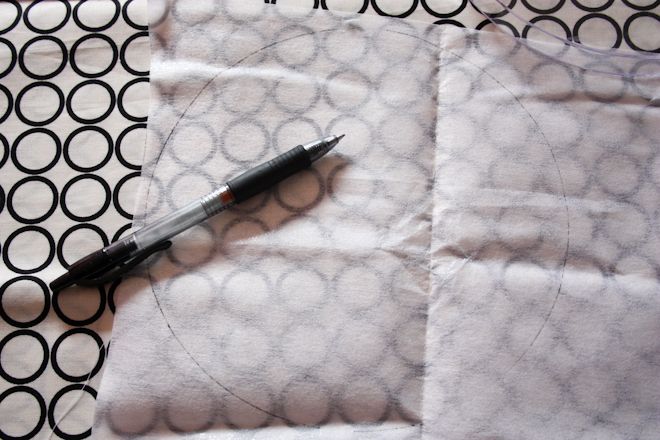
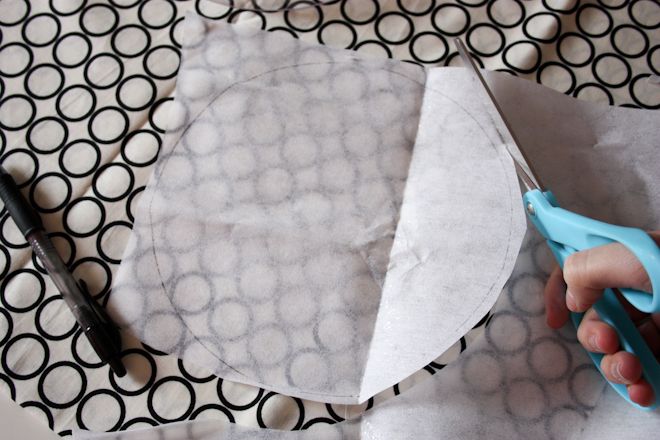
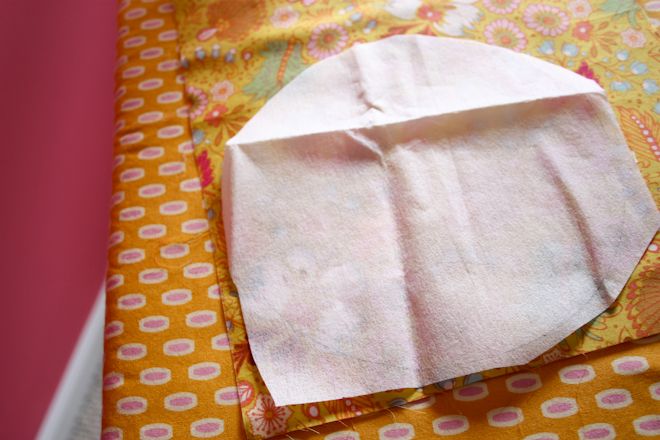
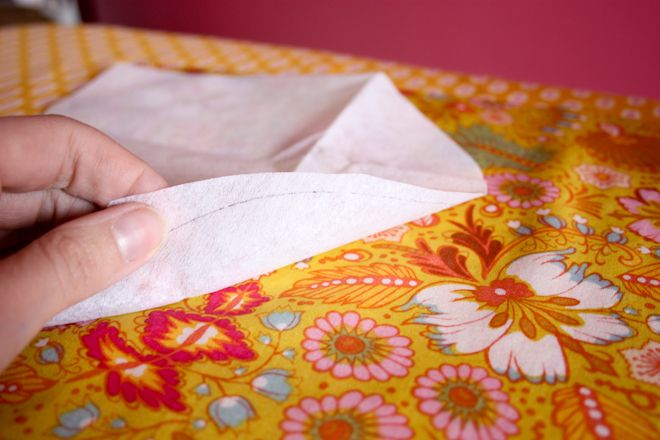
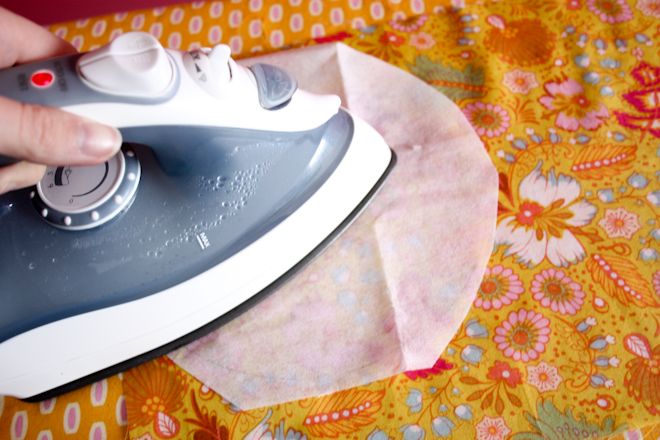
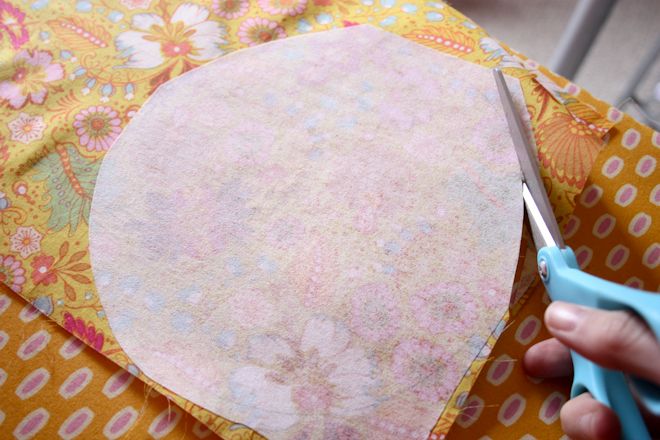
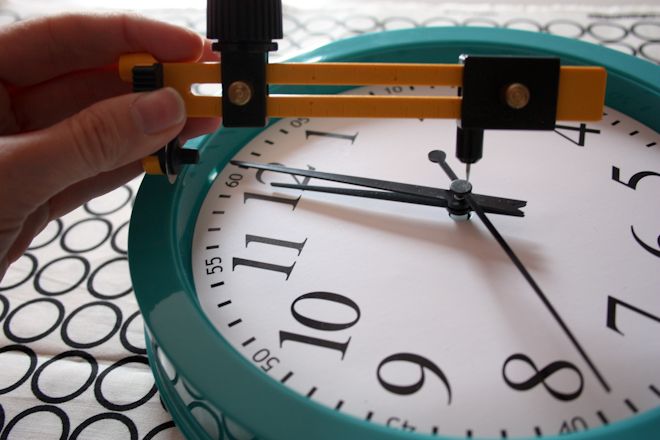
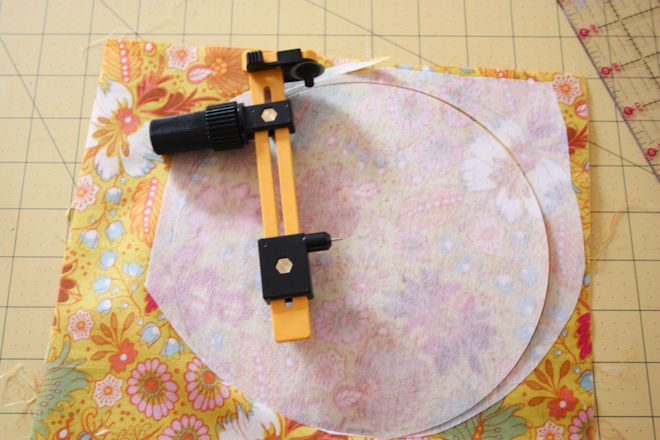
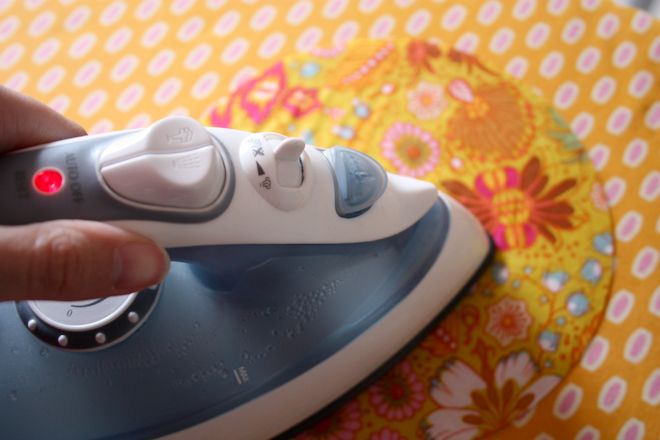
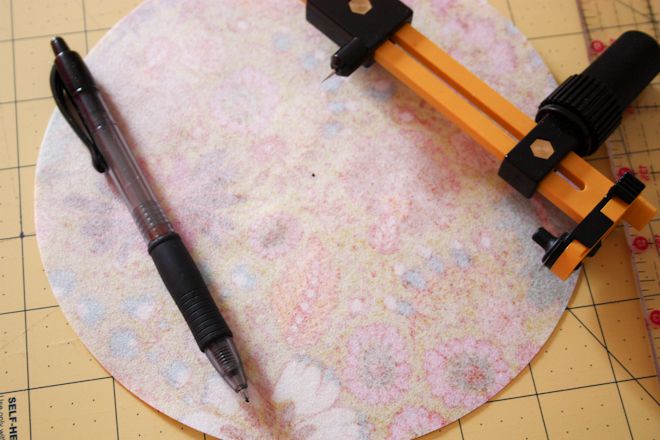
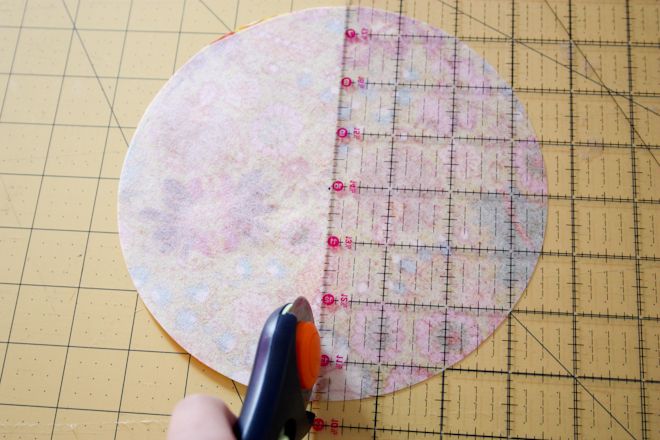
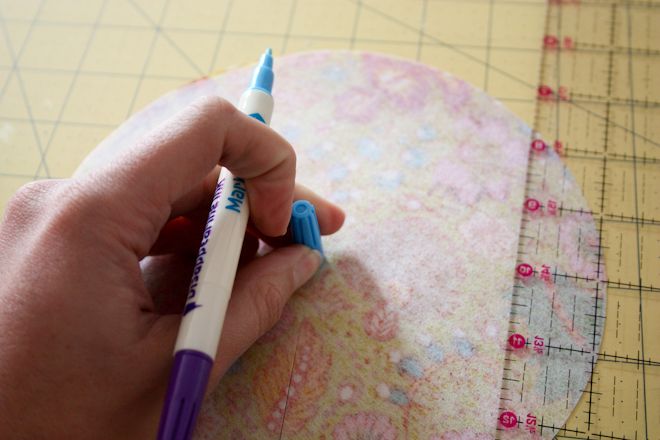
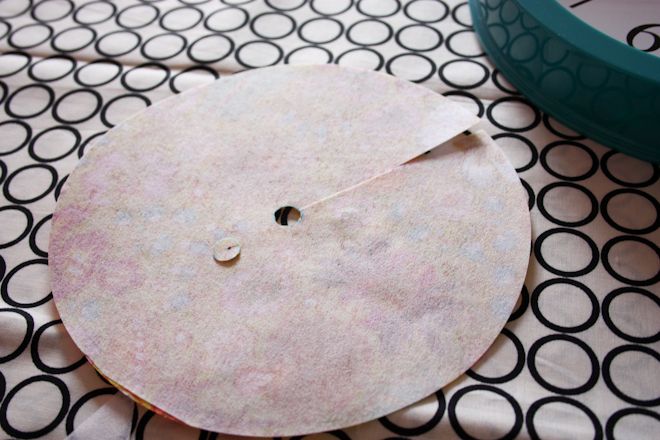
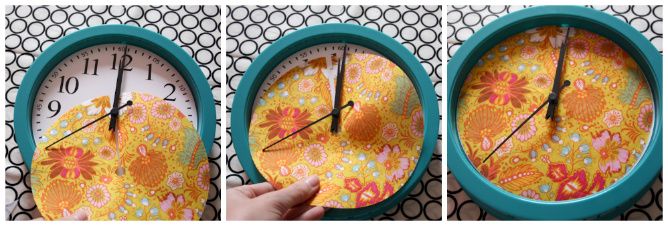
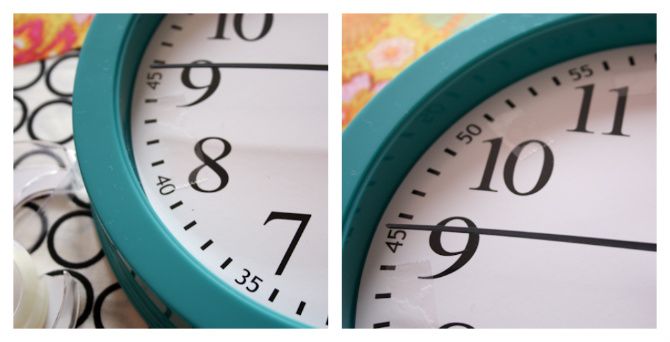
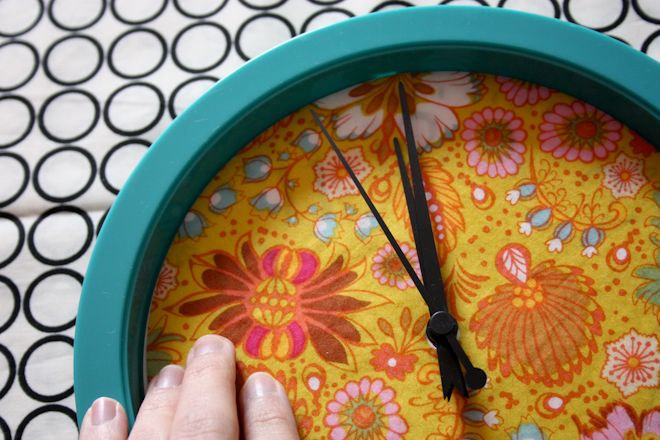
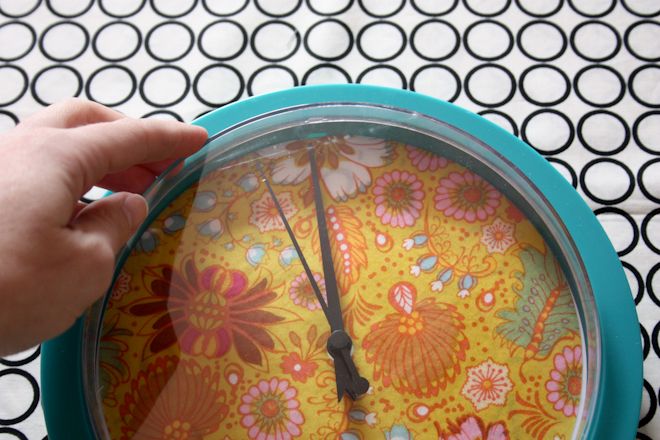

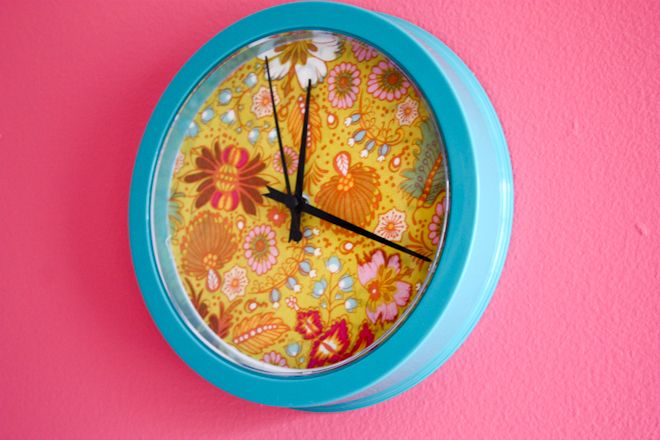
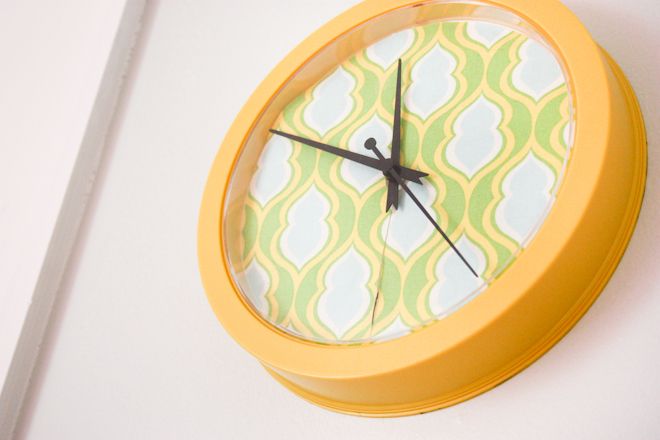
>Um, this is SUPER, super cute! I'm getting ready to move out of my parents' house in a few weeks and this would be perfect in my new kitchen. Except… can you make it for me? Hah!
>Oooh looks like fun.
Thanks Raechel!
>doin it! needed one for layla's room but hated all the plain ones. aloha, solution! you = my room essentials.
>Super cute!!
>How cute is this? Thanks for posting! I am going to jazz up my classroom clock! There's never such thing as too much color, right? ;)
Faith
>I love it!!!!! I will have to try this when I get moved into our new house.
>So cute and fun!
>very creative, Rae!
>It's really cute, but I need to see numbers to know what time it is!
Is there anyway you can move your comments link to the bottom of posts?
>Laura – I would LOVE to move the comments to the bottom. It's annoying to scroll back up, isn't it?! I've tried and dried and my Blogger template shows it at the bottom but it hasn't changed. I'm guessing it's in my CSS. Anybody available to help a sister out??
>awesome!
>I LOVE this! What a fun idea!
>this is super cute!
>Can I just say that that is the CUTEST clock I have ever seen? You're like, my idol "craft" person! I love seeing what you're making!
PS where in the world do you buy your fabrics?? I am always in love with the patterns you've chosen! =)
>I love your blog (gushing). I read it faithfully. Thanks for always sharing such cute ideas (and those cuties of yours). I featured you today at growinglittlehearts.blogspot.com/2011/03/thursday-thanks-bloggy-love.html
– just to say thanks :)
>SOOOOOOOOOO cute!! Love it. So glad a bloggy friend of mine linked up to this today so I could meet your cute little blog. Come on over and meet mine http://www.myriahmae.blogspot.com!
Your clock looks great, I love the fabric – it’s cute! Great tutorial as well, thanks! I’ve got this linked to my clocks post today for inspiration.
I loved this idea and featured it on my blog. Thanks for sharing your great tutorial!
Fabulous idea! I was thinking it would be possible to use spray adhesive. Spray the back of the fabric, then apply the fabric to the clock face. With spray adhesive you can peel and reposition until you get it perfect. Your idea is a great way to improve yard sale clocks. I must have bought 20 $.25 yard sale clocks in my lifetime.